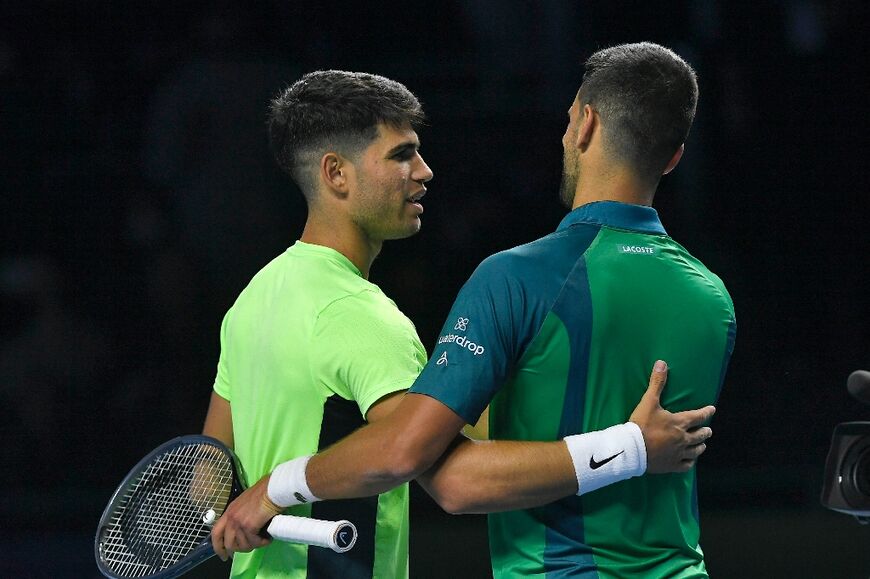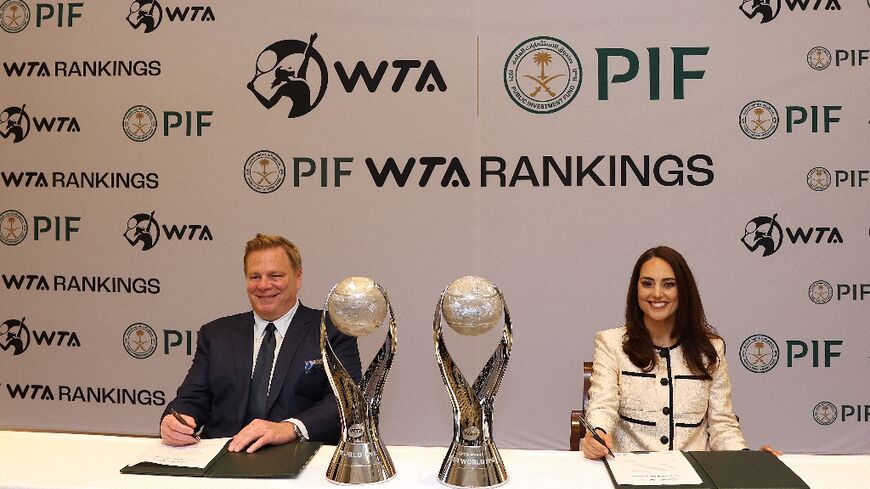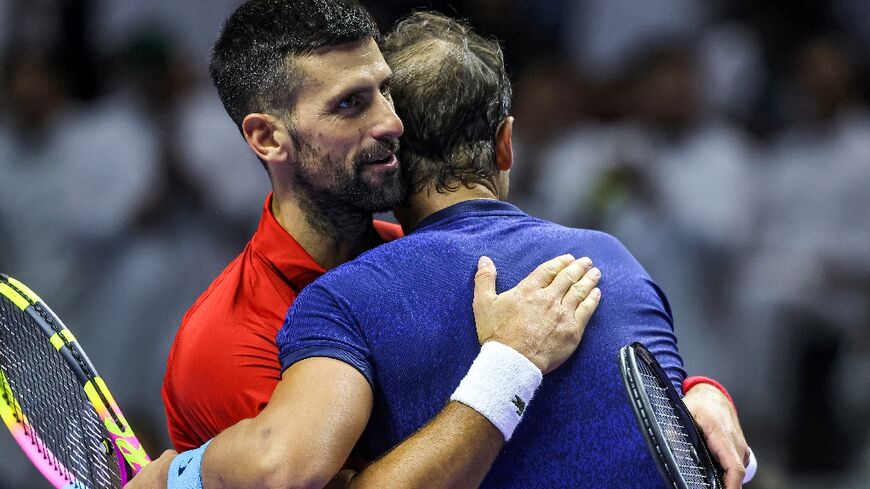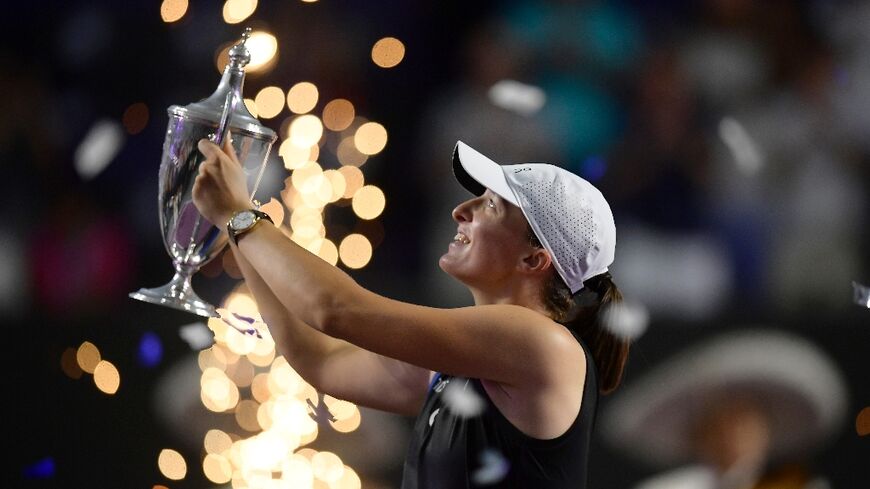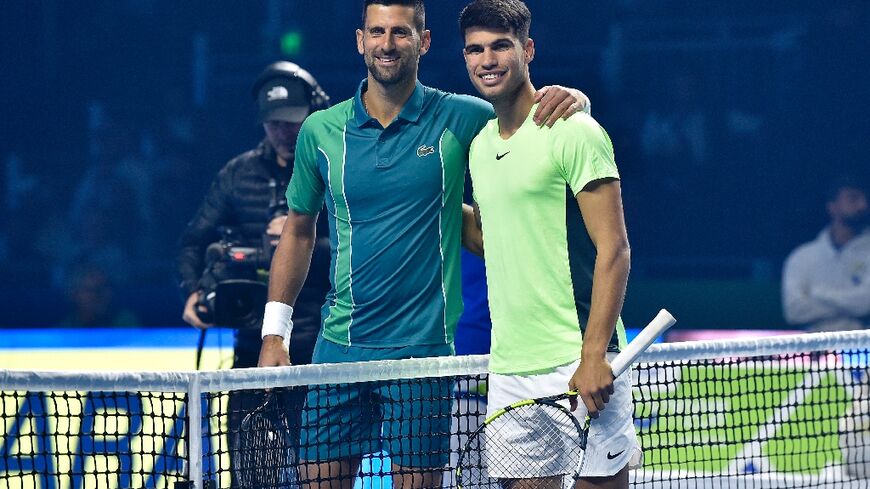'Insane': Saudi tennis elite wowed as stars flock to kingdom

When Ammar Alhaqbani first picked up a racket two decades ago while living in the United States, he knew very little about the tennis scene in his native Saudi Arabia.
Keenly aware that "football has been king" in the Gulf petro-state, he was surprised to discover a budding community of tennis enthusiasts when he flew to Saudi soil in 2011 to compete as a junior.
That community had a low profile in those days, but it is in the spotlight now as Saudi Arabia tries to position itself as a marquee tennis destination, hosting professional tournaments and luring the likes of Novak Djokovic and Ons Jabeur for exhibitions.
For Alhaqbani, now the top-ranked Saudi men's player, the transformation has been a little surreal.
Sitting courtside during a Riyadh exhibition in December, the 25-year-old was stunned when Djokovic -– his favourite player, who was facing Carlos Alcaraz –- walked over and jokingly told him to "get ready for the third set, I'm tagging you in".
It was the type of moment that would have been unimaginable a decade ago, Alhaqbani said.
"It's quite insane having these ambassadors and role models come to Saudi Arabia, and having us see them," he said.
Much like its forays into golf and football, the Saudi tennis push has met some resistance, with legends Martina Navratilova and Chris Evert denouncing Riyadh's record on women's rights in an op-ed published by The Washington Post in January.
Yet that has done little to slow Saudi Arabia's tennis momentum.
Milestones this year include naming 22-time Grand Slam champion Rafael Nadal as ambassador for the Saudi Tennis Federation and announcing a deal to host the next three editions of the WTA Finals.
- 'We're going to change' -
Conservative Saudi Arabia's bid to become a sports powerhouse is part of a larger attempt to soften its austere image.
That rebranding is central to the success of its Vision 2030 economic and social reform agenda, designed to prepare the world's biggest crude exporter for a prosperous post-oil future.
But decades before Vision 2030 took off, Saudi Arabia had its own tennis federation, and global stars occasionally graced its courts.
Areej Mutabagani, who became head of the Saudi Tennis Federation in 2021, recalls past matches involving players such as Yannick Noah, the 1983 French Open champion.
At a time when women had fewer rights, some were nonetheless able to play on private compounds, Mutabagani said, describing how she herself used courts at the US embassy.
"So we had the tennis movement back then. But of course, we didn't have the chance to compete, you know, at an international level, being a female," she said.
That is what makes the current moment so exciting, Mutabagani said, even if the sport's embrace of Saudi Arabia has drawn scorn from Navratilova and Evert, who she grew up idolising.
"I think the best way for them to really realise or understand is come to Saudi Arabia," she said.
"Come with us and share your experience... We're going to change."
- 'Beautiful' boom -
The case for change in Saudi Arabia is complicated, though, by sentences like the 11-year prison term handed down in January against Manahel al-Otaibi, a Saudi fitness instructor and blogger.
Rights groups contend law enforcement targeted Otaibi for challenging Saudi male guardianship laws and requirements for women to wear the customary body-shrouding abaya robe.
Riyadh said the verdict, which only became public last month, concerned "terrorist offences that have no bearing on (Otaibi's) exercise of freedom of opinion and expression or her social media posts".
Activists point out it is only the latest lengthy sentence for a Saudi woman who criticised the government online, after two women received decades-long terms in 2022 over critical tweets.
Despite such court rulings, a growing role for Saudi Arabia in professional tennis has the backing of players like Tunisian star Jabeur, who told AFP in February that critics "should be more informed about what's happening in Saudi", a place she said was "getting better and better".
As such debates play out largely in the international press, Saudis like Abdulrahman "Rocky" Alhaqbani, a college player turned coach and Ammar's older brother, said he was focused on developing talent at home.
"I go to courts and it seems like they're always filled," he said, describing how the sport seems to be growing in popularity.
"This is a sport I love and enjoy, and seeing the general population play -- it's beautiful."



